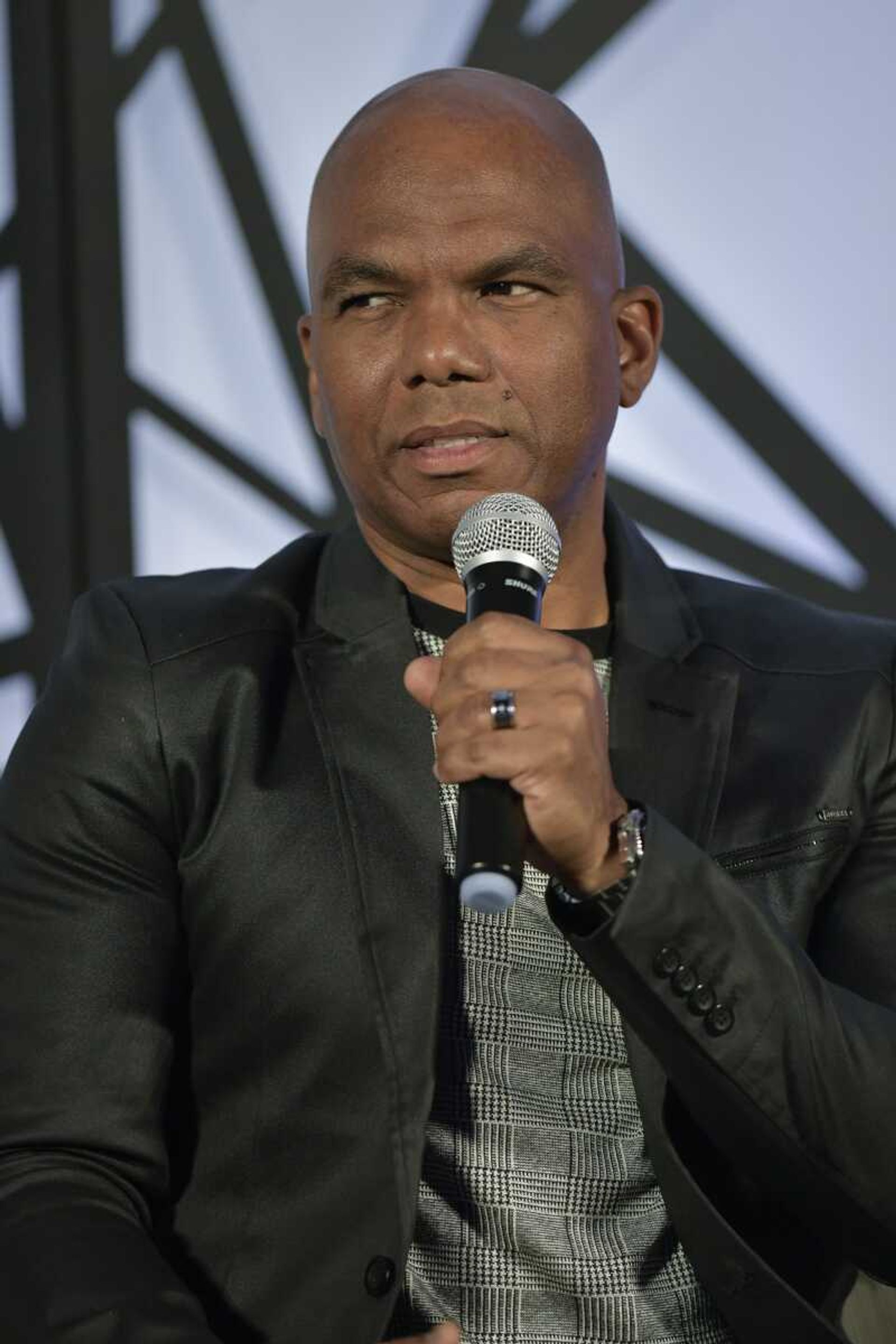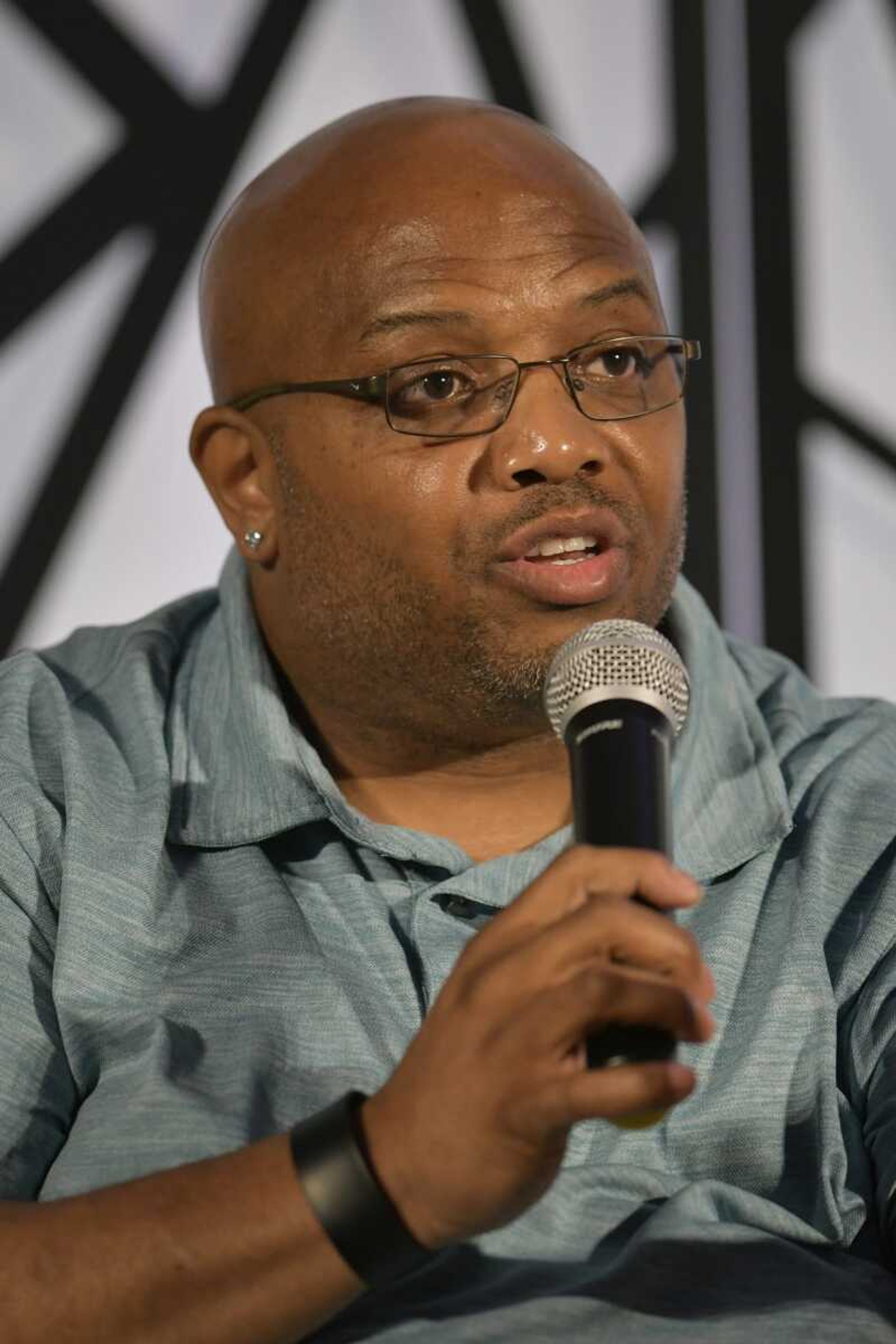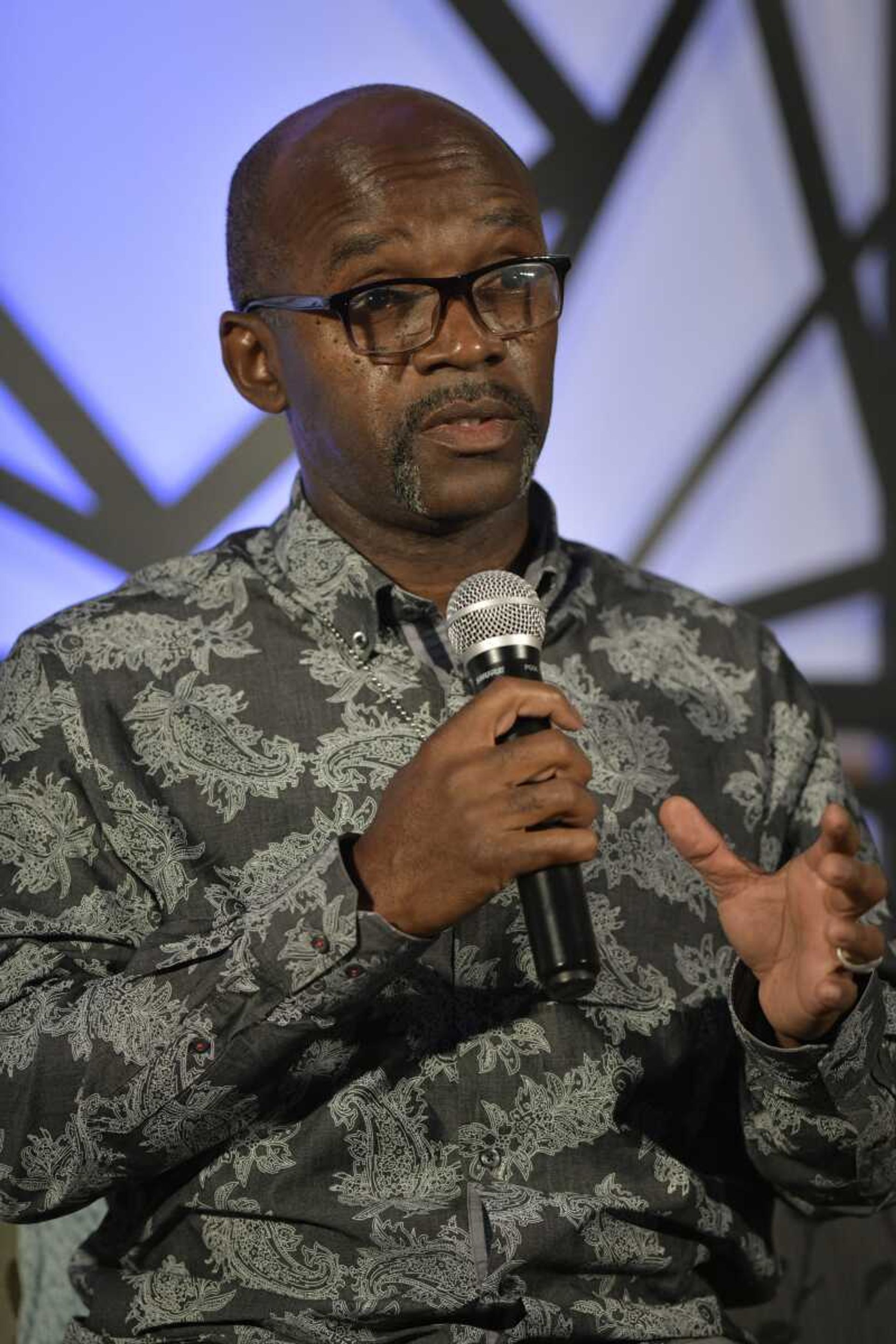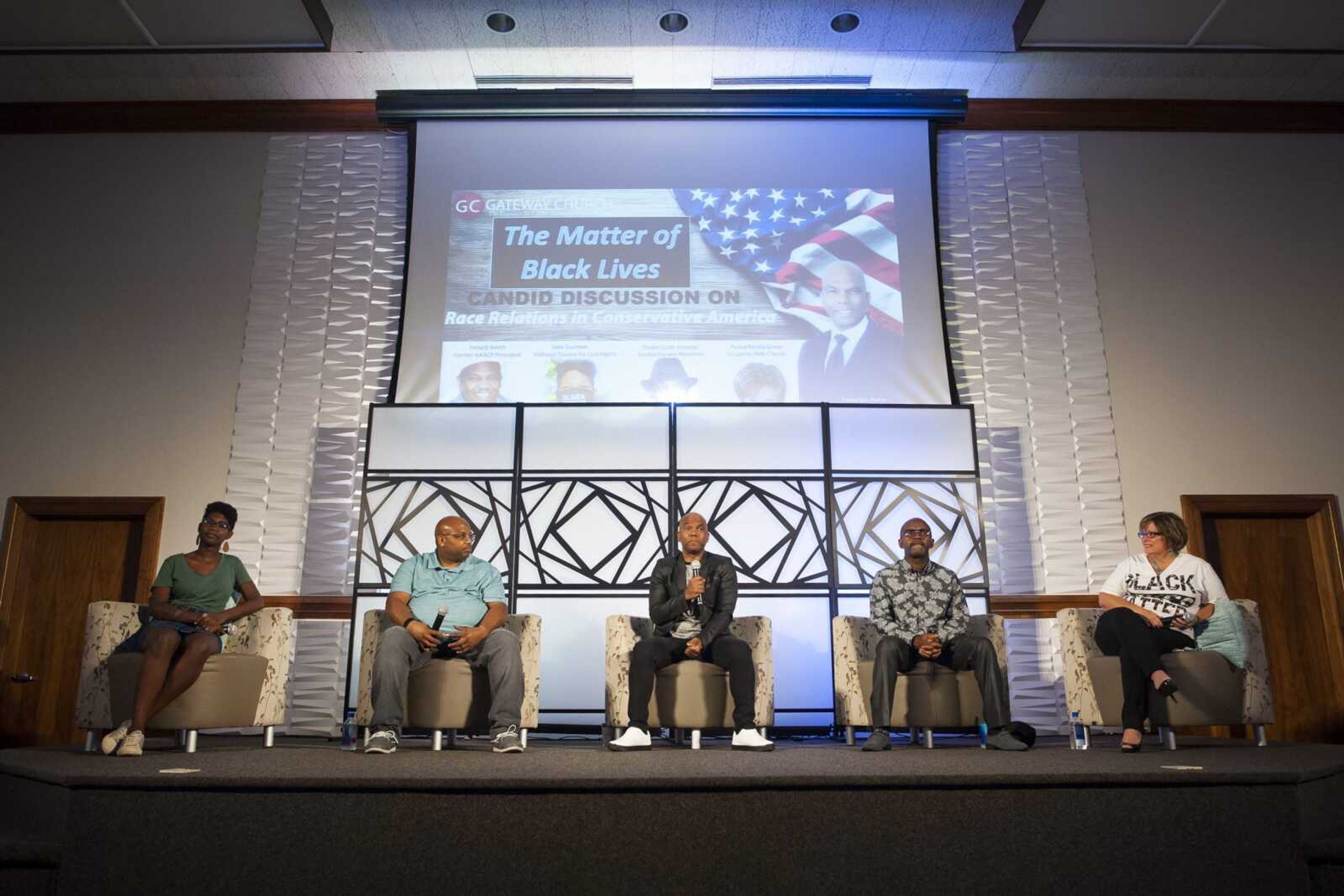Reparations, systematic oppression discussed during Gateway Church town hall
Prospective presidential candidates and the Black Lives Matter movement were just two of the topics raised Thursday night during a panel focusing on "the matters of black life" and institutional structures of economic, educational and political oppression...
Prospective presidential candidates and the Black Lives Matter movement were just two of the topics raised Thursday night during a panel focusing on "the matters of black life" and institutional structures of economic, educational and political oppression.

The conversation was the sixth installment in an ongoing series of town-hall discussions hosted at Gateway Church and moderated by pastor Ben Porter to help bring a better understanding of racial inequality.

Porter was joined on stage by Midwest Council for Civil Rights representative Jada Guzman, former local NAACP president Ronald North, St. James AME Church pastor Renita Green and Soulful Harvest Ministries pastor Scott Johnson.

The discussions opened with a question directed to Guzman about why there is a need to organize for social justice and what organizers want to obtain.

"There are so many injustices, not only in the United States but in the world, that need attention drawn to them," Guzman said. "I believe that the purposes of those groups are to bring light to those injustices, to educate those that are willing to learn and then turn a mirror at those who might not be."

Of the five questions presented to the panel, the longest discussion was related to the topic of reparations.
"This is the question that I've been waiting for," North said.
North pointed to what he said is a generational economic gap between Black and white communities, which dates back 400 years and continually grows through previously denied opportunities at wealth. In addition, he noted reparations are not a sweeping solution to problems of racial inequality.
"What kind of reparations do we need? We need whatever it takes to make those who were oppressed whole," North said. "You can't put a dollar amount on it because it's a work in progress."
Guzman agreed the topic of reparations was a multi-faceted issue that could envelop a wide variety of needs, along with Green who additionally highlighted the importance of examining how all American institutions were built off the labor of Black bodies who are now systematically excluded from those same systems.
"Reparations can look like anything that the people who were damaged say it looks like," Green said. "White people don't get to say what reparations look like. We've already had enough say."
As a follow-up comment to Green's point, Johnson expressed his own desires to see boarded up buildings in south Cape Girardeau be turned over to someone instead of being destroyed.
"If you want to make it right, it's really simple," Johnson said. "Give somebody in the community a chance to take that house and take some pride in it to say that they own something and fix it up. They may not have all the money, but a lot of us working together can help them come up with it."
In a counter, Green said asking for dilapidated properties and expecting people to give up what they did not want anyway would be "the lowest form of expectation" and does not help.
A full livestream of the town-hall discussion may be viewed by visiting Gateway Church on Facebook.
Porter said he will be hosting members of the LGBTQ community for the next town-hall discussion Aug. 20 at Gateway Church, located on the second floor of the old Federal Building in downtown Cape Girardeau.
Connect with the Southeast Missourian Newsroom:
For corrections to this story or other insights for the editor, click here. To submit a letter to the editor, click here. To learn about the Southeast Missourian’s AI Policy, click here.









